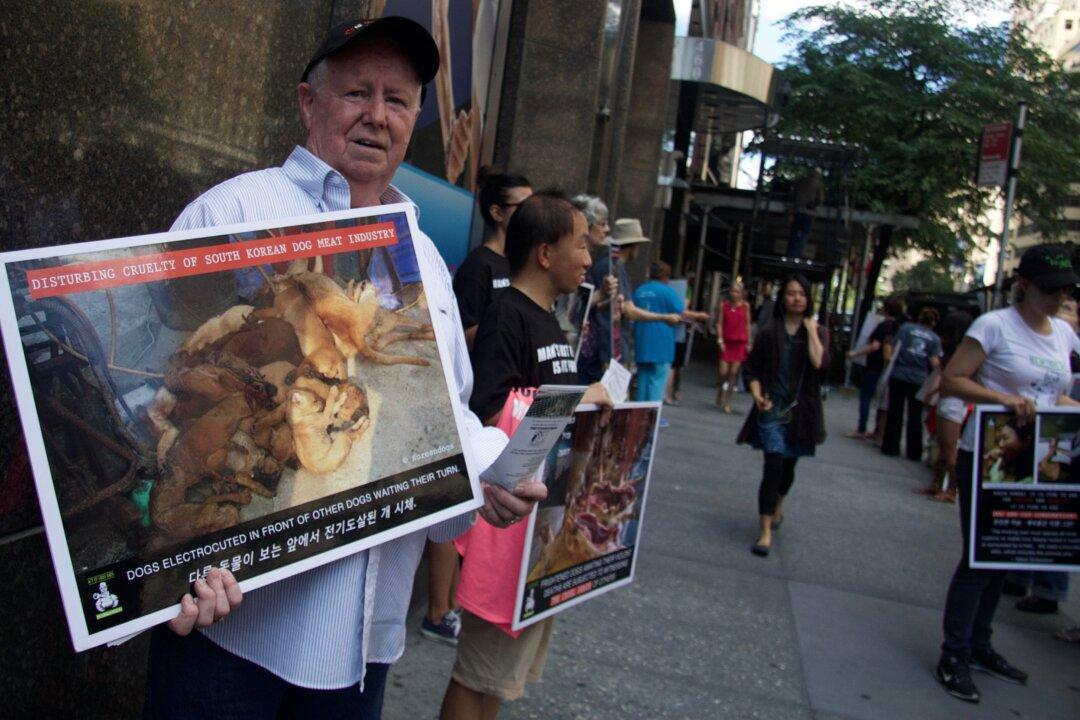NEW YORK—“Culture is no excuse! Superstition is no excuse! There will never be an excuse for animal abuse!” shouted protesters outside New York’s Korean consulate.
A small crowd gathered there on July 27 to raise awareness about what they consider the cruel slaughter of dogs and cats for South Korea’s annual Boknal Dog Meat festival.
Koreans believe dog meat cools the blood during the dog days of summer—“Bok nal” literally means “dog days.” The festival happens the end of July into August, over the hottest weeks of the year in South Korea.
Cows, pigs, and chickens commonly appear on menus across the United States so why is the festival so controversial?
According to the protesters, it’s not just the fact that dogs are put on the end of forks in South Korea. The process of acquiring the animals, plus the negative image the festival casts on South Koreans all need attention.
Dog Supply
Step one in the production of dog meat for the festival is getting a hold of dogs. According to advocacy group KoreanDogs.org, if a family pet goes missing in the summer, there’s a good chance it will end up as food at a festival.
These dog thieves are not generally arrested, since the practice is so common—there are not enough jails for every dog thief in the country, authorities have said. Moreover, since most dogs are worth so little, there’s little incentive to make the effort to go after thieves.
The only punishment a thief might receive, if caught in the act, is that locals might beat him to death.
Once a dog thief has successfully stolen enough K-9s, they sell the animals to a middleman who then sells the dogs to restaurant owners or anyone else who plans to indulge in the meat. If the dogs are still alive by this point, they might become festival entertainment, where crowds form around cooks who skin, torch, or broil dogs alive.
The animals are often killed “as painfully as possible because their adrenaline-charged meat is superstitiously believed to ward off asinine ailments like heat stroke and impotence,” according to a KoreanDogs.org letter campaign.
Similar to how dog thieves are not punished, the ones who abuse dogs for entertainment are usually looked upon as business people, rather than criminals, say activists.
In addition to the cruelties of the industry, the protesters also make the point that the festival itself creates negative stereotypes of all Koreans—even of all Asians in general.
As one of the protest poster read: “Eating dogs in South Korea is making the whole world believe that all Koreans eat dogs. This is simply NOT TRUE! There are many Korean activists that are fighting TO SAVE THESE DOGS LIVES.”
Somewhat ironically, one man passed the protest and yelled, “Don’t tell us, tell the Asians.”

